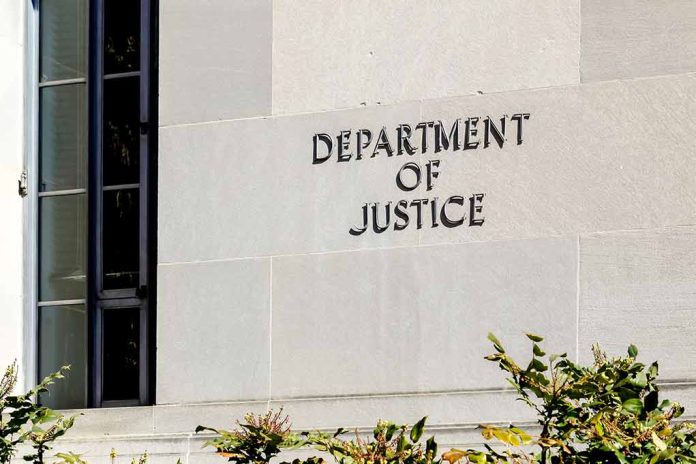
The January 6 charges against President-elect Donald Trump have been dismissed, following a request from Justice Department special counsel Jack Smith.
At a Glance
- A federal judge dismissed charges against Trump regarding his conduct surrounding the 2020 election.
- The dismissal aligns with a DOJ policy barring prosecution of sitting presidents.
- A Trump spokesperson called decision a victory for rule of law
- Smith also dropped an appeal regarding charges for mishandling classified documents.
- Trump still faces state-level cases in New York and Georgia.
Charges Dropped Following Special Counsel’s Request
U.S. District Judge Tanya Chutkan has dismissed the charges against President-elect Donald Trump related to the events of January 6, 2021, following a request from Justice Department special counsel Jack Smith. This decision comes in the wake of Trump’s recent reelection and aligns with the long-standing Department of Justice policy that does not allow for the prosecution of sitting presidents.
The dismissal of charges marks a significant victory for Trump and his supporters, who have long argued that the case was politically motivated. The charges, which included conspiracy and obstruction of Congress, stemmed from allegations regarding Trump’s claims about the past election and his actions surrounding the January 6 Capitol riot.
Jack Smith files to drop Jan. 6 charges against Donald Trump
via @ryanjreilly @KenDilanianNBC: https://t.co/XP5aF50f9j
— Sahil Kapur (@sahilkapur) November 25, 2024
Special Counsel’s Rationale
In his motion to dismiss the charges, Jack Smith cited constitutional considerations as the primary reason for the decision. Smith emphasized the DOJ’s long-held position regarding the prosecution of sitting presidents, stating that the prohibition is absolute and does not depend on the severity of the charges or the strength of the evidence.
Judge Chutkan, in her ruling, made it clear that the dismissal was not due to any impropriety or prosecutorial misconduct. This decision effectively puts an end to one of the most high-profile federal cases against a sitting president in American history.
Implications and Reactions
The dismissal of charges has been met with mixed reactions across the political spectrum. Trump’s spokesperson, Steven Cheung, hailed the decision as a victory for the rule of law and an end to what he described as the weaponization of the Justice Department. Meanwhile, critics of the former president have expressed concern about the implications of this decision for future accountability in high office.
In addition to the January 6 charges, Smith has also dropped his appeal regarding charges against Trump for mishandling classified documents. This decision came after a ruling that Smith’s appointment as special counsel was illegitimate, further complicating the legal landscape surrounding the cases against Trump.
Ongoing Legal Challenges
While the federal charges have been dismissed, President-elect Trump still faces legal challenges at the state level. Cases in New York and Georgia remain active, though they are not expected to interfere with his presidency. In New York, sentencing for Trump’s conviction on falsifying business records has been postponed indefinitely, while in Georgia, a trial date has not been set as the case is pending an appeals decision.
As the nation prepares for Trump’s return to the White House, the dismissal of these charges marks a significant turning point in the legal and political narrative surrounding his presidency. The coming months will likely see continued debate over the proper balance between presidential immunity and accountability, as well as the role of the justice system in matters involving the highest office in the land.
Sources
- Federal judge dismisses Jan. 6 case against Donald Trump at request of special counsel Jack Smith
- Judge agrees to dismiss Donald Trump’s 2020 election interference case
- Special counsel’s last criminal case against Trump dismissed

















